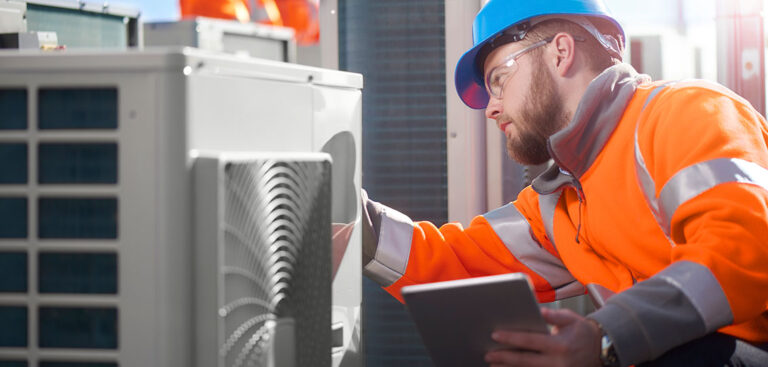Is your air conditioner on its last legs? A failing AC unit can mean sweltering summers and sky-high energy bills. If you live in a city like Ocala, Florida, where it can get as hot as 110 degrees. You have to find the right Ocala HVAC contractor near me. But how do you know when it’s time to replace it? And what are the best modern options to upgrade to? Let’s dive in.
Signs Your Air Conditioner Needs Replacement
While regular maintenance can extend the lifespan of your air conditioner, here are the telltale signs it’s time for a new one:
- Age: Most central air conditioners last 15-20 years. If yours is approaching this age, it’s likely less efficient and more prone to breakdowns.
- Frequent Repairs: Are you constantly calling for repairs? If repair costs are exceeding 50% of the price of a new unit, it’s more cost-effective to replace it.
- Rising Energy Bills: Older AC units become less efficient over time. If you notice a significant increase in your energy bills (without changes in usage), it could be due to your aging AC.
- Uneven Cooling: Are some rooms in your home too hot or too cold? This could indicate a refrigerant leak or other issues that are difficult to repair in older units.
- Strange Noises: Unusual noises like grinding, screeching, or rattling could indicate failing parts that require expensive repairs.
Modern Air Conditioner Upgrade Options
If you’re ready to upgrade your AC unit, you have several modern options to choose from:
- Central Air Conditioners: These are the most common type for whole-home cooling. New models offer improved energy efficiency (look for a high SEER rating), quieter operation, and smart features like programmable thermostats and Wi-Fi connectivity.
- Ductless Mini-Split Systems: These systems are ideal for homes without ductwork or for cooling specific rooms or zones. They’re highly efficient, quiet, and allow for individual temperature control in each room.
- Heat Pumps: These units provide both heating and cooling, making them a versatile and energy-efficient option for many climates. New heat pump models are even capable of operating in colder temperatures.
- Portable Air Conditioners: These units are great for supplemental cooling in specific rooms or for apartments where window units are not allowed. They’re not as efficient as other options but offer flexibility and portability.
- Smart Thermostats: While not an AC unit itself, upgrading to a smart thermostat can significantly improve the efficiency and control of your cooling system. These thermostats learn your preferences, optimize temperature settings, and can even be controlled remotely.
Factors to Consider When Choosing a New AC Unit
- Size: Make sure to choose an AC unit that is properly sized for your home. An oversized unit will cycle on and off frequently, leading to wear and tear and inefficient cooling. An undersized unit will struggle to cool your home adequately.
- Energy Efficiency (SEER Rating): The Seasonal Energy Efficiency Ratio (SEER) measures an AC unit’s cooling output compared to its energy consumption. Look for a unit with a high SEER rating (16 or higher) for optimal energy savings.
- Features: Consider features like variable-speed compressors for quieter and more efficient operation, programmable thermostats for customized comfort, and smart features for remote control and monitoring.
- Cost: Factor in both the upfront cost of the unit and the estimated operating costs. A higher initial investment in a more efficient unit can lead to significant savings over time.
- Professional Installation: Always have your new AC unit installed by a qualified HVAC technician to ensure proper sizing, installation, and optimal performance.
The Bottom Line
If your air conditioner is showing signs of its age, it’s time to consider a replacement. Upgrading to a modern, energy-efficient AC unit can improve your home comfort, reduce your energy bills, and even increase the value of your home. Research the different types of AC units available and consult with an Ocala HVAC Contractor to determine the best option for your needs and budget.

